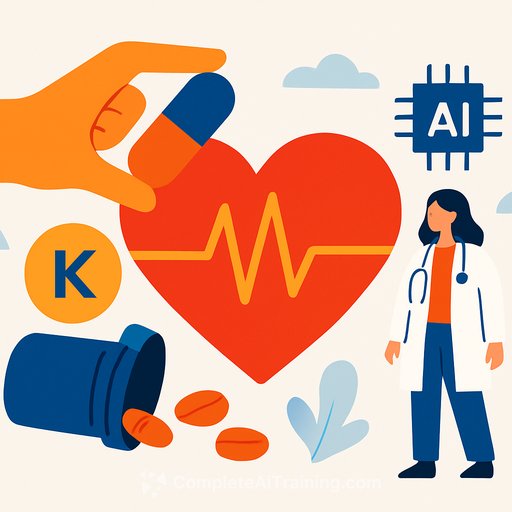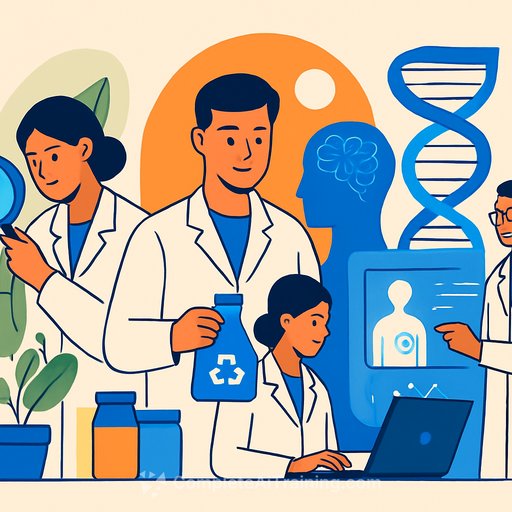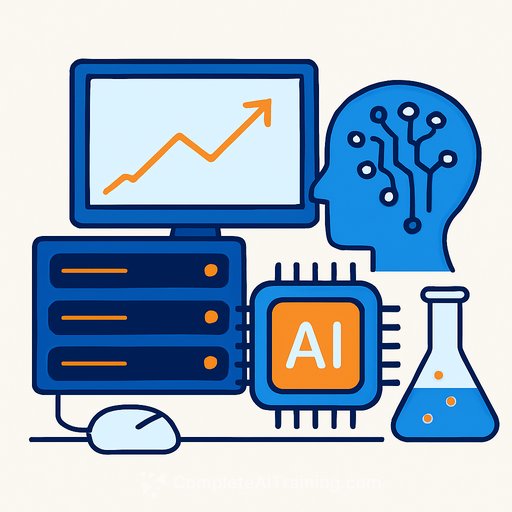Drugs, Diet, and AI: New Advances in Tackling Heart Conditions
The 2025 European Society of Cardiology (ESC) annual meeting in Madrid brought together 33,000 health professionals from 169 countries to share breakthrough research and clinical trial results in cardiology. With over 1,100 sessions, the event highlighted significant advances in medicine, lifestyle, technology, pediatric care, and vaccination strategies for heart health.
Here are the key insights from the conference that matter to researchers and clinicians focused on cardiovascular health.
1. Medicine
Hypertension affects 1.3 billion people worldwide, with half having blood pressure that remains uncontrolled despite treatment. A new drug, baxdrostat, showed promising results in the BaxHTN study by lowering blood pressure by 9-10 mmHg more than placebo after 12 weeks. This reduction is sufficient to decrease cardiovascular risk in patients resistant to existing medications.
Additional drug research revealed that clopidogrel outperforms aspirin in preventing heart attacks and strokes, reducing the risk of major cardiovascular or cerebrovascular events by 14%. Weight loss medications also showed potential to halve the risk of hospitalization or premature death among heart patients.
2. Diet and Exercise
Potassium-rich foods like avocados, bananas, spinach, pulses, fish, nuts, and seeds can reduce the risk of heart-related hospitalizations and deaths by 24%, according to Danish research presented at the conference. Potassium helps the body eliminate excess salt, which is a known factor in cardiovascular issues.
Exercise remains a cornerstone for heart health by lowering resting blood pressure and heart rate, improving cholesterol, and aiding in weight management. Newly presented evidence suggests physical activity might also help repair heart tissue after damage.
3. Artificial Intelligence
A new AI-powered stethoscope developed by Imperial College London can detect heart failure, valve disease, and abnormal rhythms within 15 seconds by analyzing subtle heartbeat and blood flow patterns alongside a rapid ECG. Early detection through this tool enables timely treatment before conditions worsen.
Another AI scanning system has significantly improved stroke recovery rates, tripling the number of patients avoiding serious disability. Additionally, the ESC Chat generative AI tool supports cardiologists by providing instant access to clinical guidelines and treatment recommendations, streamlining diagnostic and decision-making processes.
4. Children
Arrhythmogenic cardiomyopathy (ACM) leads to over 10% of sudden cardiac deaths in children and is usually genetic. Researchers at Great Ormond Street Hospital and City St George’s, University of London, introduced a quick cheek-swab test capable of identifying ACM up to five years before traditional diagnosis. The test is being developed into an at-home kit.
Concerns were also raised about high vaping rates among youth, with experts warning about the irreversible cardiovascular harm caused by e-cigarettes. Exposure to toxins and carcinogens in vaping products is believed to negatively impact millions of teenagers’ heart health.
5. Vaccines
Vaccination is gaining recognition as a preventive tool against cardiovascular events. A global meta-analysis on the shingles vaccine revealed it could reduce the risk of heart attack or stroke by up to 18%. This finding supports expanding vaccine use as part of comprehensive cardiovascular disease prevention strategies.
These findings from the ESC 2025 conference highlight practical advances in treatment, prevention, and early detection of heart conditions. The integration of new drugs, lifestyle adjustments, AI technology, pediatric screening, and vaccines offers multiple avenues to improve patient outcomes.
Your membership also unlocks:





